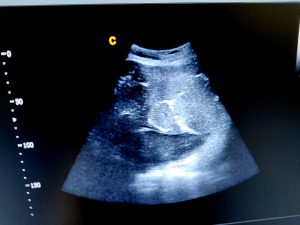
In a new study, researchers show that elevated levels of proteins associated with cellular senescence, or aging, in the blood and placenta are linked to this form of heart failure. Perinatal cardiomyopathy (PPCM), a form of heart failure that occurs in late pregnancy or the early postpartum period, is one of the most common causes of maternal death.
Development of Maternal Heart Failure
New research led by investigators at Massachusetts General Hospital, a founding member of the Mass General Brigham Health System, provides new insights into the mechanisms underlying the development of PPCM and points to potential new strategies for therapeutic development. The findings are published in Science Translational Medicine.
Although heart disease is now the leading cause of maternal death, our understanding of the biology underlying many of these diseases is still very limited. The study identifies some of the underlying age-related biology that contributes to the development of maternal heart failure in pregnancy and provides evidence from both patients and animal models.

The work of Roh and his colleagues began with an unexpected discovery. While investigating the role of senescent (or aged) cells in older adults with heart failure, they were surprised to find that proteins secreted by these aged cells were detected at even higher levels in the blood of young pregnant women with heart failure. Based on these initial findings, the researchers conducted experiments to determine whether these senescent proteins could contribute to the development of PPCM and preeclampsia, a hypertensive pregnancy disorder that is a major risk factor for PPCM and postpartum heart failure.
Their considerations were based on previous work showing that the placenta, a hybrid maternal-fetal organ found only in pregnancy, exhibits markers of increased aging towards the end of pregnancy. When the team examined the placenta of women with preeclampsia, they found that it had several markers of increased senescence and tissue aging, as well as increased expression of many of the senescent proteins found in the blood of women with preeclampsia or PPCM.
The most highly expressed cellular senescent protein in these placentas was activin A, and higher levels of this protein were associated with either more severe cardiac dysfunction or heart failure in women with preeclampsia or PPCM.
What Role the Placenta Plays
While the placenta undergoes a normal physiological ageing process (or senescence) during pregnancy, this process appears to be exacerbated in women who develop heart failure during pregnancy. The researchers believe that this leads to the placenta releasing various factors into the mother’s blood that can have a negative effect on the function of the heart.
In experiments on mice, the placentas of mice with PPCM showed a similar increased expression of proteins associated with cellular senescence. Treatment of these mice with fisetin, a drug that can selectively eliminate highly senescent cells, during mid to late pregnancy partially reduced placental senescence and improved cardiac function. Treatment with an antibody directed against the receptor for activin A after pregnancy had similar effects in these animals.
Although we are still in the very early stages of understanding how increased placental senescence may affect the mother’s heart function, experts believe their findings answer some basic questions about the biology of heart failure in pregnancy. It is important to know that placental senescence is a normal part of pregnancy. To understand why this process is disrupted in pregnancy-induced heart disease and to determine exactly how it can be safely regulated, the next steps are critical before these findings can be implemented.


